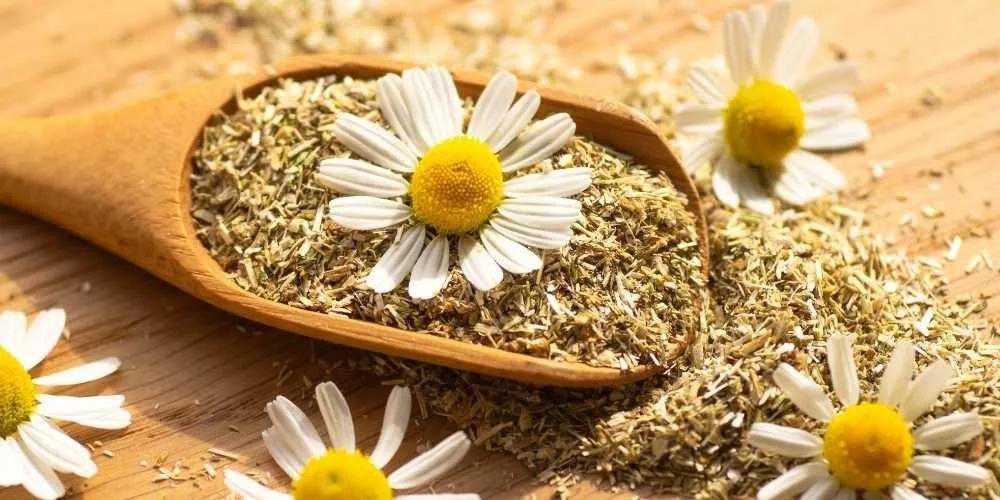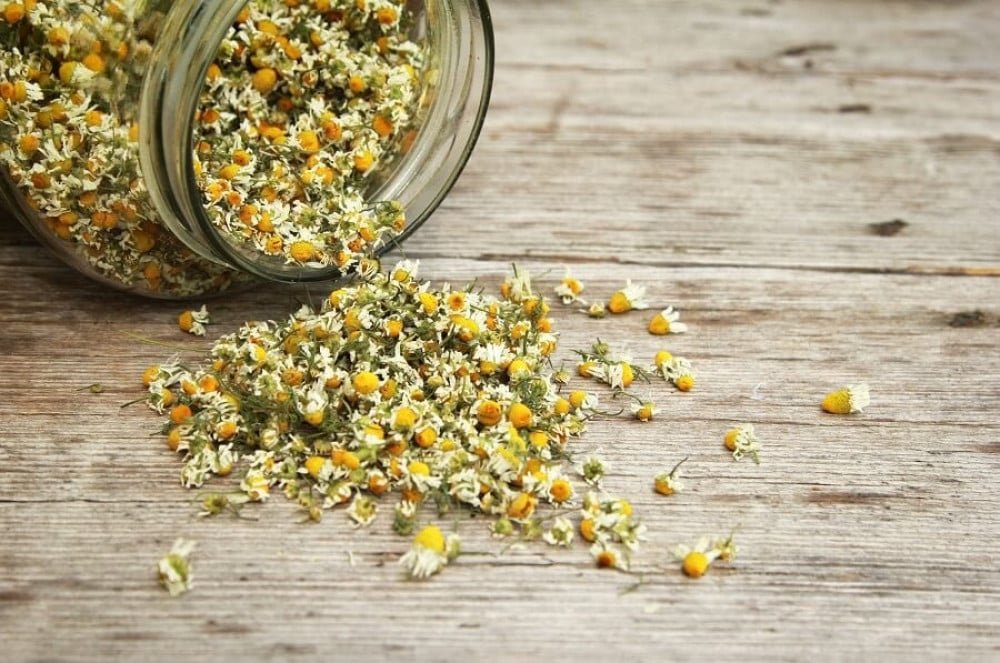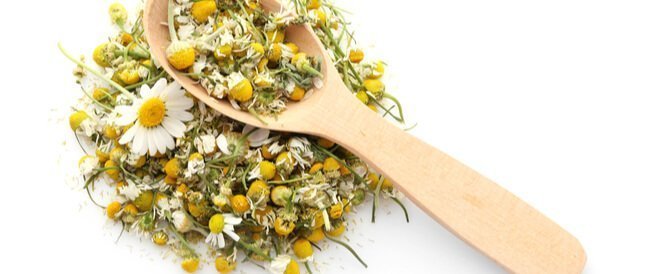Table of contents of the article
Toggle
Chamomile is an herbal plant with a long history in traditional medicine, where it is used to calm the nerves and improve sleep quality. In this article on your website, WORLD OF PLANTS, we will discuss the most prominent health benefits of chamomile that you should know.
Characteristics of the chamomile plant
Below are the most prominent characteristics of the chamomile plant:
- The chamomile plant reaches a height of about sixty centimeters.
- Chamomile plant is very branched and fast growing.
- The stem of the chamomile plant is erect and bears small leaves and compound flowers.
- The chamomile plant is characterized by its distinctive aromatic scent.
Benefits of chamomile
Studies indicate the possibility of using chamomile flower or chamomile tea to treat some diseases or symptoms, as the benefits of chamomile include:
- Relieve stress and insomnia.
- Relax muscles when using chamomile oil with massage, or drinking chamomile tea.
- Treating lower back pain and menstrual pain.
- Treating mouth ulcers caused by medications used to treat cancer (when used in the form of mouthwash).
- Reducing diarrhea in children.
- Relieve nausea and vomiting.
- Treatment of colic in children.
- Relieve heartburn and stomach disorders.
- Preventing hemorrhoids and relieving their pain.
- Relieve skin inflammation and irritation.
- Diaper rash treatment.
- Accelerate wound healing.
- Some studies indicate that the effectiveness and benefits of chamomile are comparable to the ability of hydrocortisone creams to treat eczema.
The benefits of chamomile for your health
Chamomile has many health benefits, and the most prominent benefits of chamomile are:
Boost immunity
Did you ever know that chamomile is a natural and effective antibiotic? Chamomile works to enhance immunity and increase the body's immunity against infection and inflammation. Thus, boiling chamomile may be effective in treating influenza and colds, and alleviating their symptoms.
Treating insomnia and sleep disorders
According to some studies, boiling chamomile is considered to soothe the nerves and helps with relaxation. Therefore, drinking 3-4 cups of boiled chamomile contributes to the treatment of insomnia. Studies and laboratory experiments on animals have confirmed that eating small amounts of chamomile may contribute to alleviating anxiety and helps To sleep and solve sleep problems and disorders.
Treating skin diseases and mouth ulcers
Drinking a decoction of chamomile or using it topically may contribute to treating and soothing some skin problems, such as: eczema, dermatitis, and diaper rash. Chamomile is also useful as a mouthwash and contributes to treating mouth ulcers and enhancing its health.
Alleviating the symptoms of premenstrual syndrome
Some studies have found that after drinking chamomile decoction for two weeks, an increase in levels of the amino acid glycine was observed, which contributes to reducing muscle spasms, and also helps relax the nerves, which contributes to reducing the symptoms of premenstrual syndrome, which includes tension, uterine contractions, and abdominal pain. .

Other benefits of chamomile
Chamomile offers the following benefits:
- Fighting some types of cancer.
- Fighting inflammation and thus reducing the risk of arthritis and autoimmune disorders.
- Slow or prevent osteoporosis.
- Reducing blood sugar levels.
Benefits of chamomile for children
Many mothers use chamomile decoction to treat many infant problems, such as: colic, diarrhea, and fever. The American Academy of Family Physicians has confirmed that infants consuming chamomile decoction in small quantities contributes to alleviating abdominal pain and colic, as it combats muscle spasms, soothes stomach disorders, and is an antidote. For diarrhea.
However, it is not recommended for those under five years of age to consume more than half a cup of chamomile decoction per day, and the temperature of the decoction must be checked before giving it to them.
Benefits of chamomile for the skin
Chamomile is one of the herbs that is very beneficial for skin health.

These are the most prominent benefits of chamomile for the skin:
- It has antiseptic properties for wounds.
- It is rich in powerful antioxidants that make it an anti-inflammatory, especially when applied directly to the skin.
- It fights dark skin spots, is a natural skin whitener, and reduces dark pigments, thus it is effective in lightening the skin.
- Cold chamomile decoction can be applied to minor wounds and scratches, as it disinfects and soothes them and speeds up the healing process.
Benefits of chamomile for hair
Did you ever know that chamomile can be a natural alternative to lightening dye? Rinsing your hair repeatedly with chamomile infusion contributes to gradually lightening the hair color. Chamomile is also effective in treating some scalp problems and is effective in treating dandruff as well.
Harms and dangers of chamomile
Although there are many benefits of chamomile, excessive use may cause some harm and side effects, which requires taking it in moderate quantities. Chamomile side effects include:
- Allergies, which often appear with the use of chamomile for the first or second time. The allergy is represented by the appearance of a skin rash if used topically on the skin, but in the event of difficulty breathing, or swelling of the face, lips, tongue, or throat, this requires a closer visit. Clinic immediately. Allergies may be accompanied by skin itching.
- Chamomile may trigger allergies in people who are allergic to plants in the daisy family, so it is preferable to avoid chamomile if you have previously been exposed to symptoms of allergy to plants such as: ragweed, calendula, and chrysanthemum.
- Drowsiness and vomiting if taken in large doses.
Warnings of using chamomile
If you want to consume chamomile in quantities greater than those found in food in order to obtain its medical benefits, the following must be taken into consideration:
- It is preferable to consult a doctor before starting to use chamomile for long-term treatment if the person suffers from health problems, as it contains coumarin in a small amount, and thus may lead to blood thinning, especially if used in large doses and for a long period.
- It is recommended to stop using it two weeks before surgery, as it may also interact with anesthesia medications.
- Pregnant and breastfeeding women should avoid chamomile.
- It is preferable to consult a doctor before using chamomile with infants and children.
Chamomile interaction with medications
The interaction of chamomile with some medications may lead to side effects, so a doctor’s advice must be taken before using it in quantities greater than those found in food to obtain the health benefits of chamomile, especially if the person is taking certain medications such as cancer medications or diabetes medications.
It is recommended to consult a doctor before taking chamomile if you are taking other medications that may interact with it, such as:
- Tranquilizers.
- Blood thinners.
- Antiplatelet agents.
- Aspirin.
- Nonsteroidal anti-inflammatory drugs (NSAIDs) such as ibuprofen and naproxen.
- Supplements containing ginkgo biloba or garlic
In conclusion, we would like to note that we, at the world of plants website, offer you all the necessary services in the world of plants, we provide all farmers and those interested in plants with three main services::-
- Artificial intelligence consulting service to help you identify diseases that affect plants and how to deal with them.
- Blog about plants, plant diseases and care of various crops ... You are currently browsing one of her articles right now.
- An application that provides agricultural consultations to clients, as well as a service for imaging diseases and knowing their treatment for free – Click to download the Android version from Google Play Store، Click to download the IOS version from the Apple App Store.
References




